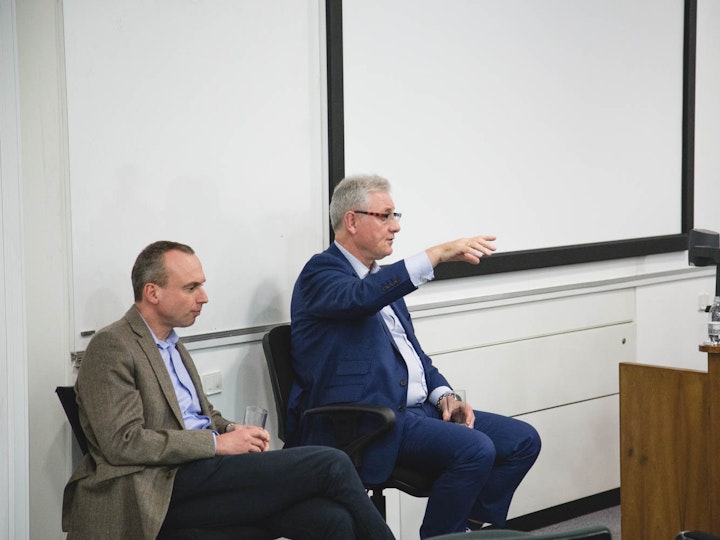Industry Insights: Pensions
This week we took a look at pensions with two industry experts: Richard Hall from Argyll Covenant and Henry Tapper from First Actuarial (and author of "The Vision of the Pension Playpen", one of the top ten websites every investor should bookmark according to the Times)

This week we took a look at pensions with two industry experts: Richard Hall from Argyll Covenant and Henry Tapper from First Actuarial (and author of "The Vision of the Pension Playpen", one of the top ten websites every investor should bookmark according to the Times)

Pensions: Personal
With people living longer than ever, the state can't afford to pay for 100% of peoples' upkeep once they retire. The state pension will not be sufficient, so people have to make private provision, with some help from their employer. Henry explained that this was the motivation behind auto enrolment, new legislation that requires employers to offer a pension scheme to their staff.
The key take away for students - when you get your first pay slip and see that some money has been deducted for your pension contributions, this is a GOOD thing. Due to compounding of returns, the sooner you can start saving into a pension, the better.
Pensions: DB and DC
Richard explained the difference between a defined benefit pension (where the annual amount received in retirement is fixed and guaranteed by the employer) and a defined contribution pension (where the annual amount received is not guaranteed and depends upon the performance of the underlying investment portfolio). A DB pension is clearly better, but they can still fail if the sponsoring employer goes bust or decides that they can't afford to support the scheme anymore. Richard's company, Argyll Covenant, works on behalf of scheme members to assess the risks of that happening - very similar to how a ratings agency works assessing credit worthiness. We've seen examples of these potential failures in the news recently with Carillion and the Universities pension (which may lead to strike action that directly affects students).
Pensions: Careers
There are plenty of opportunities to work in the pensions industry, from consultancies like Richard's and Henry's to big pension advisory firms and of course the pension funds themselves. Traditionally much of the work has been focused on the DB schemes, but as Henry pointed out, auto enrolment means that the DC side is now growing and there will be a lot of work to do ensuring that these schemes are well ran and deliver for their members.

Pensions: Investment
Pension funds are also big investors, and touch on many areas of finance. Whether you are working as an investment banker, asset manager or regulator - there's a good chance you will come into contact with pension funds at some point. It's worth knowing something about how these key buy-side players work.